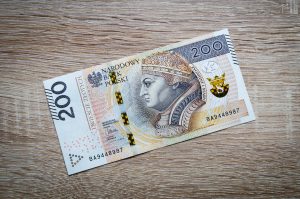Futures and Forex are two widely traded financial instruments that are often used by individuals and institutions alike to hedge risks or speculate on the price movements of various underlying assets. While both futures and forex are derivatives products that allow traders to take positions on the direction of market movements, there are significant differences between the two that make them unique.
Futures Trading
A futures contract is an agreement between two parties to buy or sell an underlying asset at a predetermined price and date in the future. These contracts are traded on organized exchanges and are standardized in terms of the quantity, quality, and delivery date of the underlying asset. Futures contracts can be traded on a wide variety of assets, including commodities, currencies, stock indices, and bonds.
Futures trading is often used by investors and traders to hedge risks associated with fluctuations in the prices of the underlying assets. For example, a farmer who is worried about the price of wheat falling before the harvest can sell wheat futures contracts to lock in a price for their crop. Similarly, a company that is concerned about the price of oil rising can buy oil futures contracts to protect themselves against price spikes.
Futures trading can also be used for speculative purposes, as traders can profit from price movements in the underlying asset without actually owning it. Futures traders can take long positions (buying futures contracts) if they believe that the price of the underlying asset will rise or short positions (selling futures contracts) if they believe that the price will fall.
Forex Trading
Forex trading, also known as foreign exchange trading or currency trading, is the buying and selling of currencies on the foreign exchange market. The forex market is the largest financial market in the world, with trillions of dollars in daily trading volume. Unlike futures trading, forex trading is decentralized and takes place over-the-counter (OTC) through a network of banks, brokers, and traders.
The main purpose of forex trading is to profit from the fluctuations in the exchange rates of different currencies. Forex traders can buy a currency at a lower price and sell it at a higher price, or sell a currency at a higher price and buy it back at a lower price. The exchange rate of a currency pair is determined by the supply and demand for the two currencies in the pair.
Forex trading is often used by investors and traders to diversify their portfolios and hedge against currency risks. For example, a multinational corporation that operates in multiple countries can use forex trading to hedge against currency fluctuations that could affect their profits.
Key Differences Between Futures and Forex Trading
While futures and forex trading share some similarities, there are significant differences between the two that make them unique. Here are some of the key differences between futures and forex trading:
1. Trading Hours: Futures trading takes place on organized exchanges during specific trading hours, while forex trading is available 24 hours a day, five days a week.
2. Leverage: Both futures and forex trading allow traders to use leverage, which means that they can control a larger position in the market than their initial investment. However, leverage is typically higher in forex trading, which can result in greater profits or losses.
3. Liquidity: The forex market is the largest and most liquid financial market in the world, with trillions of dollars in daily trading volume. Futures trading, on the other hand, is less liquid and can be subject to price gaps or slippage during periods of high volatility.
4. Contract Size: Futures contracts are standardized in terms of the quantity, quality, and delivery date of the underlying asset, while forex trading involves trading currency pairs that are not standardized.
Conclusion
In conclusion, futures and forex trading are two popular financial instruments that allow traders to hedge against risks or speculate on the price movements of underlying assets. While both futures and forex trading involve taking positions on the direction of market movements, there are significant differences between the two that make them unique. Understanding these differences is important for investors and traders looking to diversify their portfolios and manage risks.





